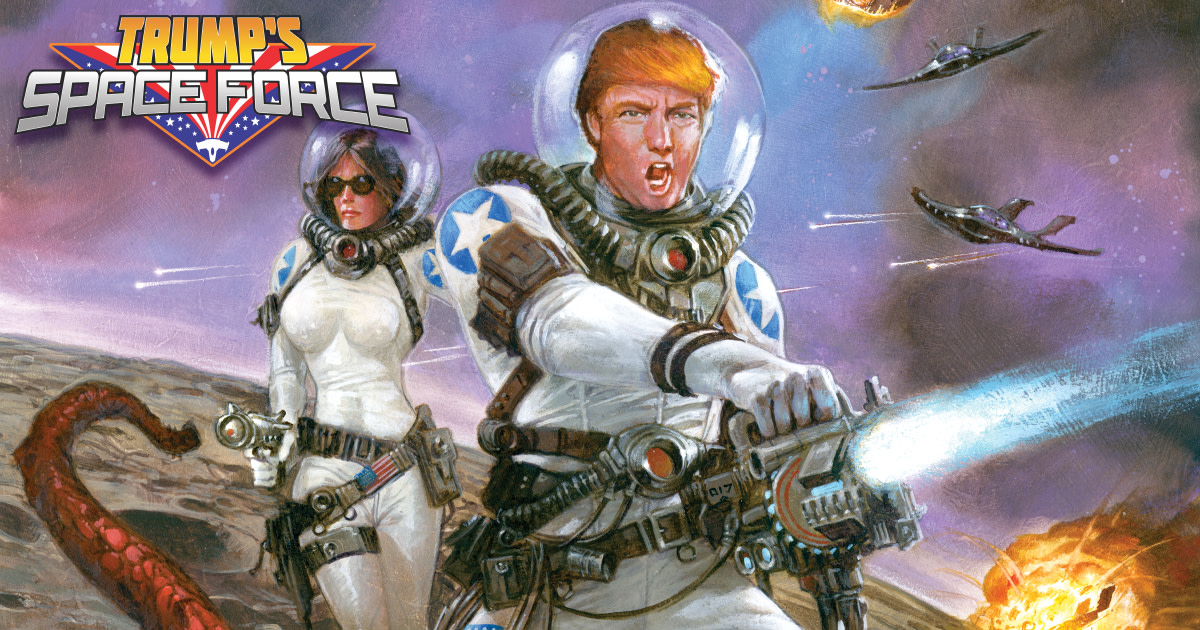
The Space Force Be With You: Canada and the Non-weaponization of Space
(November 25, 2019) —Those concerned with outer space currently face something of a paradox. Space has never been more important for global prosperity and wellbeing, yet It has never seen such little effort to secure this unique realm through international cooperation.
While currently some 2000 satellites are in operation — providing a myriad of services from telecommunications to remote sensing — exponential growth in the use of space is imminent.
With new private space entities leading the way, taking advantage of radically reduced satellite manufacturing and launch costs, mega “constellations” of satellites (some 16,000 over the next decade) will be placed in low earth orbit, permitting global broadband Internet access among other applications.
The 1967 Outer Space Treaty, with its designation of outer space as a “global commons” exempt from any claims of sovereignty and its stipulation that space activity be for “peaceful purposes” and “for the benefit and interests of all countries” has provided the international legal foundation for this peaceful exploitation of space.
With 109 state parties, the treaty has been a bulwark against adventurism in space. Its prohibition on stationing weapons of mass destruction in space or militarizing the moon or other celestial bodies has underscored the treaty’s vision of space as a realm for international cooperation (think of the International Space Station and its multinational crew) rather than an arena for confrontation.
Regrettably, the Outer Space Treaty seems to be fading from the consciousness of states. Instead of appreciative references to it we are encountering in official US statements, a leading space power, a depiction of outer space as a “war-fighting domain” one in which the pursuit of military “dominance” is the aim.
The Trump Administration is moving to create a new “Space Force” as an independent entity within the military. Russia, China and India all major space powers are taking their own military actions in light of this altered situation.

An ominous development has been the renewed testing of anti-satellite weapons (ASAT) after a quarter of a century hiatus in state pursuit of this capability. In 2007 and 2008, China and the US respectively demonstrated an ASAT capability, with India joining this “club” with its own test in March 2019. Debris from such destructive weapons can wreak havoc in the earth orbits that are increasingly been sought for the expanded “constellations” and could render some orbits unsafe for operations.
Other potent “counter space” capabilities are reportedly being developed by these rival space powers, while trading accusations that it is “the other guy” who is responsible for militarizing outer space.
Normally, one would expect that at such a time of rising tensions among key space powers, other members of the international community, notably its “middle powers” would step forward to try and prevent a descent into conflict.
Unfortunately, there has been scant evidence of such diplomatic leadership being exercised by others. A UN Group of Governmental Experts that concluded a report this March on possible legal elements of an international agreement to prevent an arms race in outer space was unable to release its findings due to the last-minute objection of the US representative.
A Sino-Russian draft treaty on the Prevention of the Placement of Weapons in Outer Space has languished for a decade at the Conference on Disarmament in Geneva, itself a moribund forum that hasn’t been able to agree on a program of work for 20 years. The US has been strongly critical of the Sino-Russian draft accord, but has offered no alternative proposals of its own. The EU dropped in 2015 a promising initiative it had for an International Code of Conduct for space activities when it ran into resistance from non-European space players.
If the newly elected Canadian Government is looking for a foreign policy initiative extremely relevant to the national (and global) interest, it might consider demonstrating some leadership in shoring up the sagging regime for sustaining space security. In an earlier era, Canada was noted for its constructive diplomacy on outer space and was a vocal champion of the goal of the non-weaponization of outer space.
At the UN General Assembly session this fall, Canada stated that “it would support a multilateral solution to address ASAT tests and thereby increase confidence and transparency among outer space actors”. This expression of concern is commendable, it would be even more so if Canada didn’t merely support a solution, but offered up one of its own.
Paul Meyer is a Fellow in International Security and Adjunct Professor of International Studies at Simon Fraser University. He is the chair of the Canadian Pugwash Group.
Posted in accordance with Title 17, Section 107, US Code, for noncommercial, educational purposes.